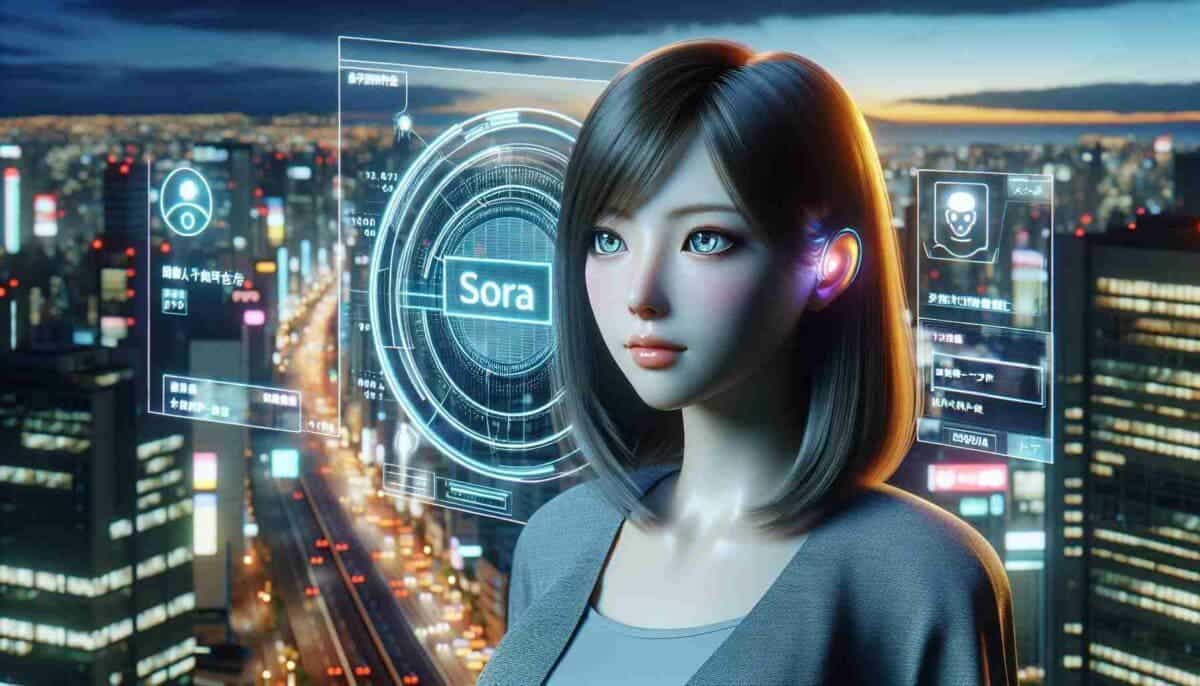Unveiling OpenAI's Sora: Complex Video Generation Process
핵심 개념
OpenAI's Sora video generation process is complex and time-consuming due to the sophisticated algorithm and massive data processing involved, prioritizing quality over speed.
초록
OpenAI introduced Sora, a text-to-video model capable of producing high-quality videos in minutes. The rendering times are compared to traditional film production techniques, emphasizing the technology's growth stage. Despite scalability challenges, AI-generated content like Sora showcases the potential for future innovations.
요약 맞춤 설정
AI로 다시 쓰기
인용 생성
소스 번역
다른 언어로
마인드맵 생성
소스 콘텐츠 기반
소스 방문
www.gizchina.com
One Minute of Sora by OpenAI: Over an Hour of Generation Time
통계
"90 hours for a 90-minute movie."
"An enormous amount of computing power is needed to carefully examine and synthesize each frame of the movie."
인용구
"People worldwide appreciated the real and stunning visuals they got to see with this model."
"That’s pretty reasonable. 90 hours for a 90-minute movie."
핵심 통찰 요약
by Aditya Rasik 게시일 www.gizchina.com 02-21-2024
https://www.gizchina.com/2024/02/21/openai-sora-video-generation-time/
더 깊은 질문
What are the ethical implications of relying heavily on AI for content creation?
Relying heavily on AI for content creation raises various ethical concerns. One major issue is the potential loss of human creativity and jobs in creative industries. As AI becomes more advanced, there is a risk that it could replace human artists, writers, and creators, leading to unemployment and devaluing human input in artistic endeavors. Additionally, there are concerns about bias in AI-generated content. Since these models learn from existing data, they may perpetuate stereotypes or discriminatory practices present in the training data. Transparency and accountability also become crucial as AI-generated content can be manipulated or used for malicious purposes without proper oversight.
Is prioritizing quality over speed always beneficial in technological advancements?
Prioritizing quality over speed can be beneficial in technological advancements, especially when it comes to complex processes like generating high-quality videos with AI models such as Sora from OpenAI. While speed is important for efficiency and productivity, sacrificing quality can lead to subpar results that do not meet user expectations or industry standards. In fields where precision and accuracy are paramount, such as video production or medical diagnostics using AI algorithms, prioritizing quality ensures reliable outcomes and maintains trust with users. However, striking a balance between quality and speed is essential to optimize performance while meeting deadlines effectively.
How can AI-generated content like Sora impact traditional entertainment industries?
AI-generated content like Sora has the potential to revolutionize traditional entertainment industries by offering new possibilities for creativity and efficiency. With tools like text-to-video models capable of producing high-quality visuals based on user prompts within minutes (despite longer generation times), creators can explore innovative storytelling techniques and enhance visual effects without extensive manual labor involved in animation or film production processes.
Moreover, the scalability of AI-generated content allows for cost-effective solutions that streamline production workflows while maintaining high standards of audio-visual fidelity.
However,
the widespread adoption of this technology may disrupt traditional roles within entertainment industries,
leading to shifts in job requirements
and skill sets needed by professionals.
Overall,
AI-generated content presents opportunities
for enhanced creativity
and streamlined production processes
in traditional entertainment sectors,
ushering in a new era of innovation
and collaboration between humans
and intelligent machines
0
